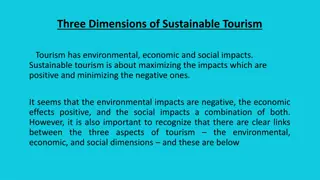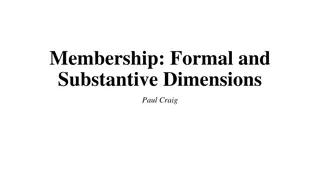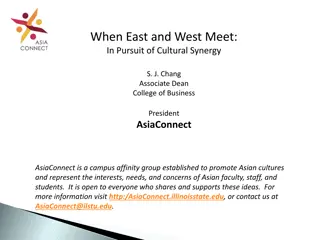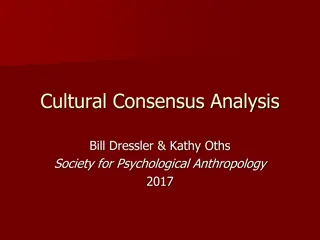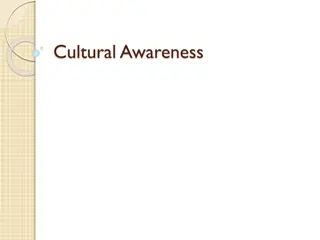Understanding Cultural Dimensions by Geert Hofstede
Geert Hofstede, a prominent sociologist, introduced five parameters to explain cultural differences, categorizing cultures into national and organizational. The dimensions include power distance, individualism, masculinity, uncertainty avoidance, and long-term orientation. Each dimension explores how cultures perceive power, self-identity, gender roles, uncertainty, and time orientation. These insights aid in understanding and navigating intercultural communication and organizational dynamics.
Download Presentation

Please find below an Image/Link to download the presentation.
The content on the website is provided AS IS for your information and personal use only. It may not be sold, licensed, or shared on other websites without obtaining consent from the author. Download presentation by click this link. If you encounter any issues during the download, it is possible that the publisher has removed the file from their server.
E N D
Presentation Transcript
GeertHofstedeis a leading sociologist and organizational sociologist in thefield of interculturalcommunication. He divide culturesinto twobasically: 1. National 2. Organizational Provided 5 parameterstoexplain thecultures that areseparated into two.
The dimension of thepower intervalis on therelationship withthe weak, strong, in the society. It divides intonarrow power range and wide power range. Incountries where there is a narrow rangeof power, the weaker people in the society expect more democratic andegalitarian relations. For example, in environments where narrowpower is experienced, employees are more comfortable communicating withtheir superiors andcan criticize decisions made. According to Hofstede's research, "narrowpower range" is more common in western countries. Wide power rangeis seen in Asiancountries. Those whoare weak accept the authority andcan not question it. Adapts hierarchy. Militaryorder is a regular witha wide power range.
It is the dimension that interested in how members of the culture describe themselves. In individualist cultures, people define themselves independently of other people in society. They act in accordance with their own desires and goals. People in communist cultures describe themselves as part of their families or communities theyfeel important. Theyput the interests of thecommunity in front of their own interests. There is a claim that as income (national income) increases, it progresses towards individualism.
In masculinity, values such as stereotyped allegations, competition, ambition peculiar to men; In femininity, the concepts such as value, equality and quality of life given to associations come to the forefront. In masculine cultures, individuals retain power and success. There is a definite distinction between male and female roles in societies where this cult is dominant. Disputes are resolved by discussion. In feminine cultures, harmony and agreement between people is important. Going to clash is going to cover up. Happiness and tranquility are held on the front rather than success and power.
This dimension measures the fear and anxiety of the members of the cult. In societies where the avoidance of uncertainty is strong, people want clear, clear rules. Employees tend to work long in a workplace because theyare anxious about the job search process. In cultures where the avoidance of uncertainty is weak, the flexibility of the rules does not disturb theindividual. Employees in these communities or communities change jobs more often.
At this dimension, the difference between the value given to the future and the value given to the past is taken into account. In long-running societies people value actions and attitudes towards the future. Insistence, perseverance, frugality, shame are the dominant concepts in these societies. Commitment to traditional values, dignity is important in short-run society. Movements and attitudes based on the past and the past are valued. Concepts such as rationalist approaches, respect for traditions, resistance to change come to the forefront. It is important to come down to the core of a topic in a long-runningWestern society. They want to start work for the future.





